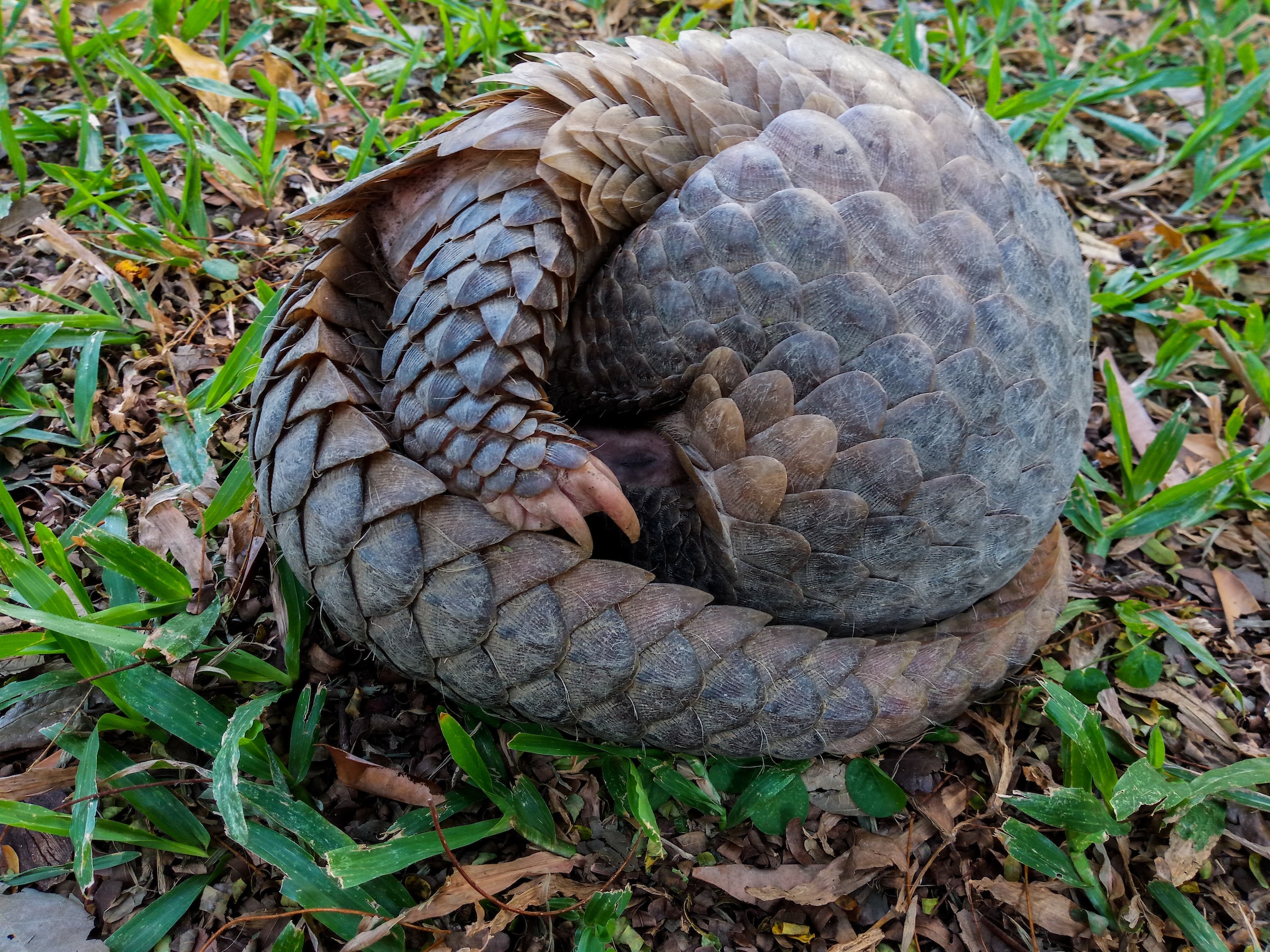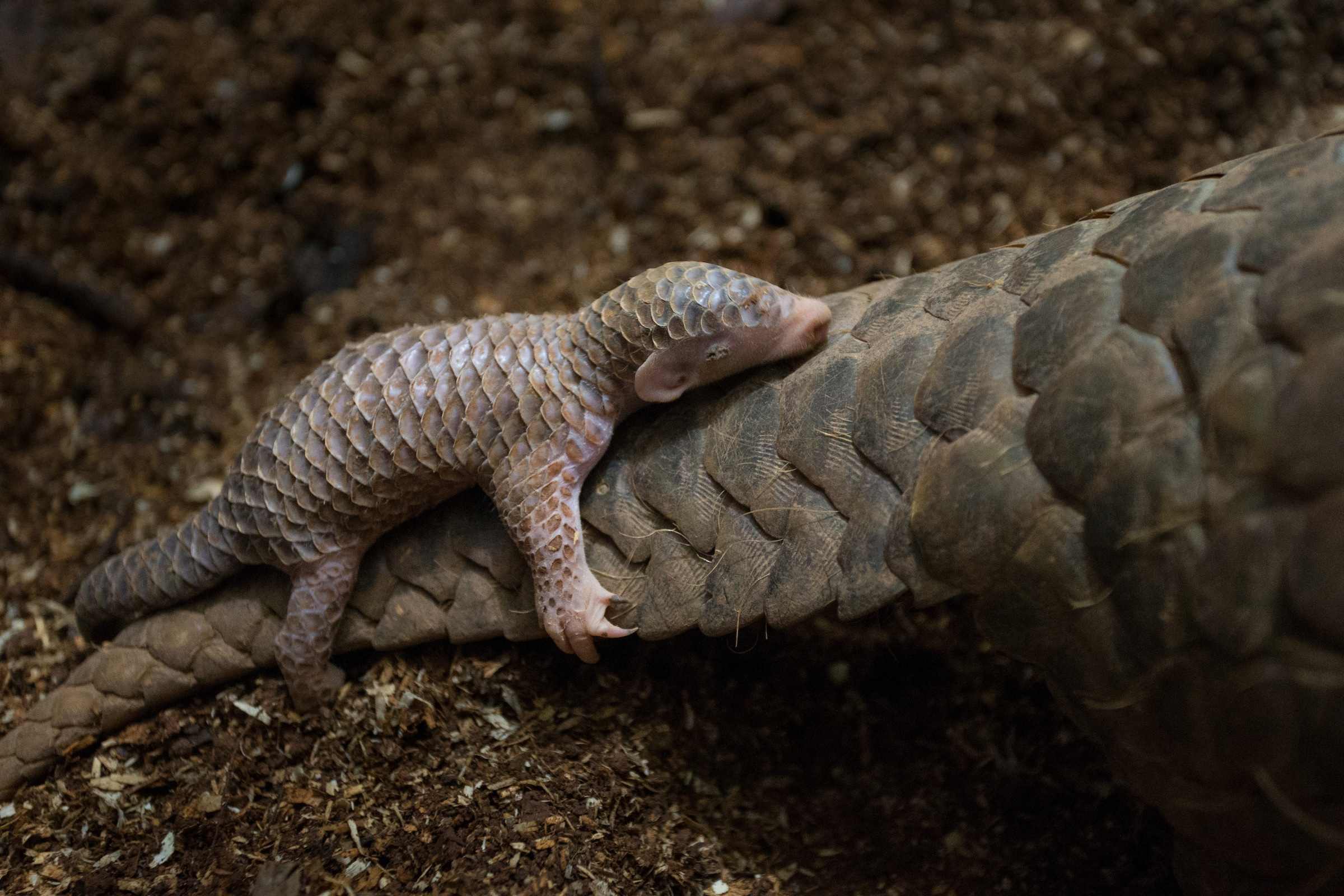Found across Africa and Asia, the highly elusive pangolin is named after its instinct to roll into a ball as a defense mechanism. The name “pangolin is a Malay word for “roller” or “rolling over.” When threatened, pangolins roll into a ball and expose their scales to potential predators, protecting their soft underbelly.

All eight species of pangolin are the only mammals covered in these scales, which are made out of keratin, like our fingernails and hair. Since they have long tongues and no teeth, pangolins’ preferred meals are ants and other insects. Due to their recognizable scales and diet preferences, pangolins are nicknamed “scaly anteaters.” Pangolins however are not closely related to anteaters.
Their distinctive look has led to creative nicknames for pangolins that have become commonplace. Pangolins are known by nicknames like walking pinecones, artichokes with tails, and even dinosaurs.

Cutest of all, a baby pangolin is often called a “pangopup.”
No matter what name they go by, pangolins are unique and all members of their species must be protected.

